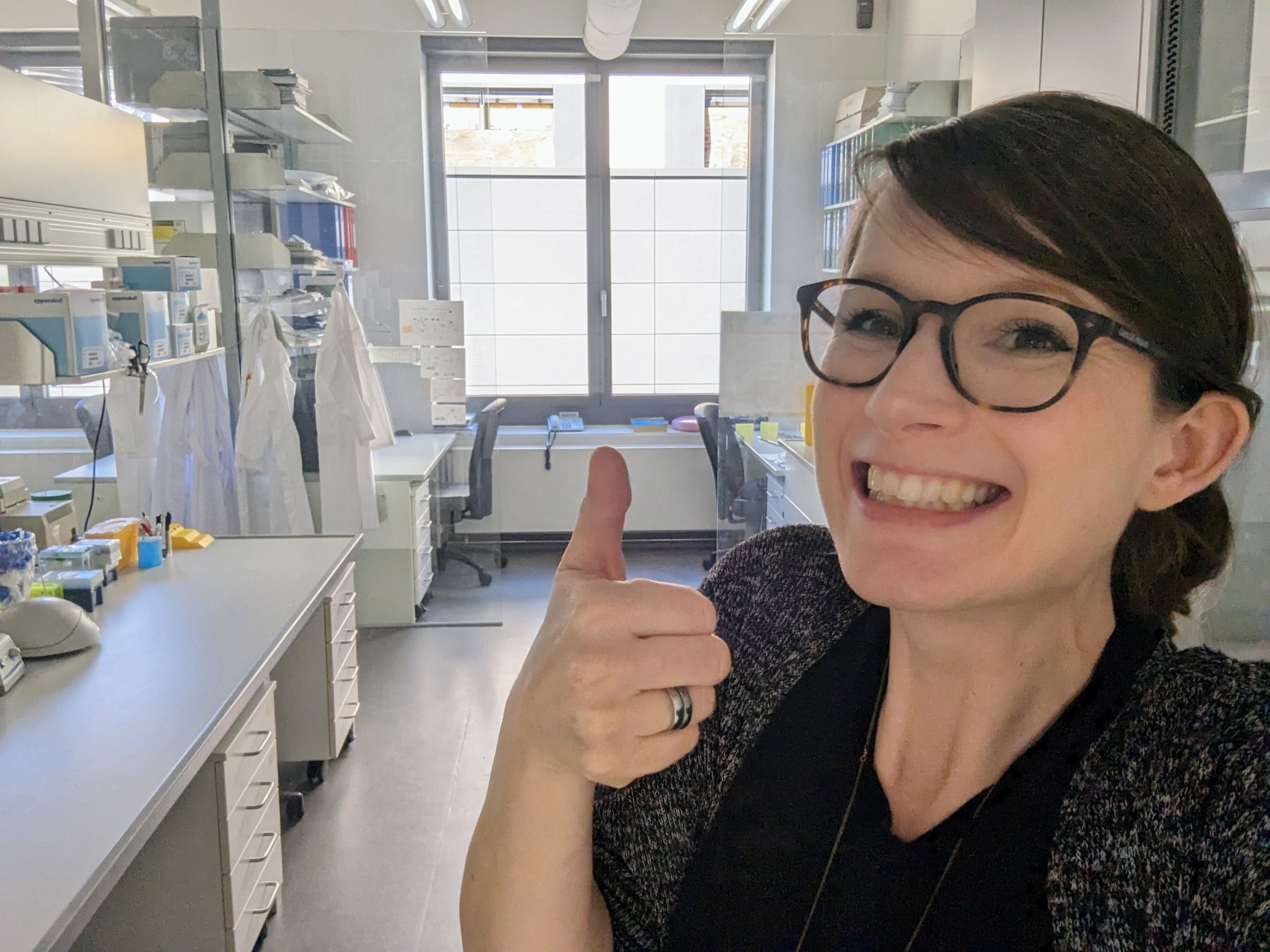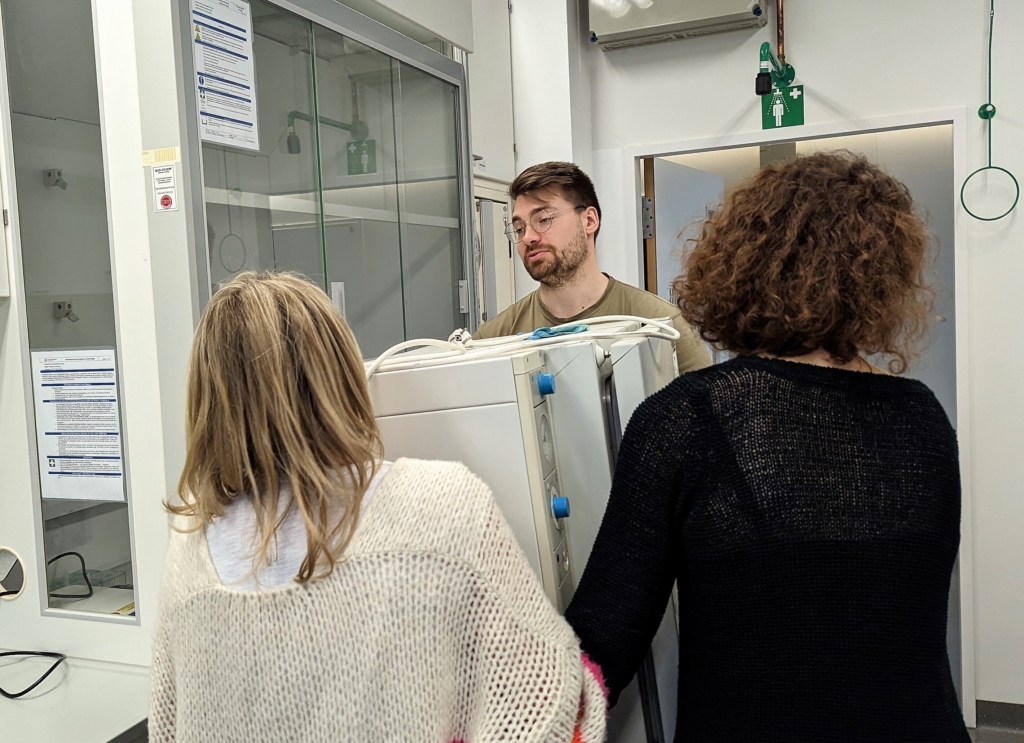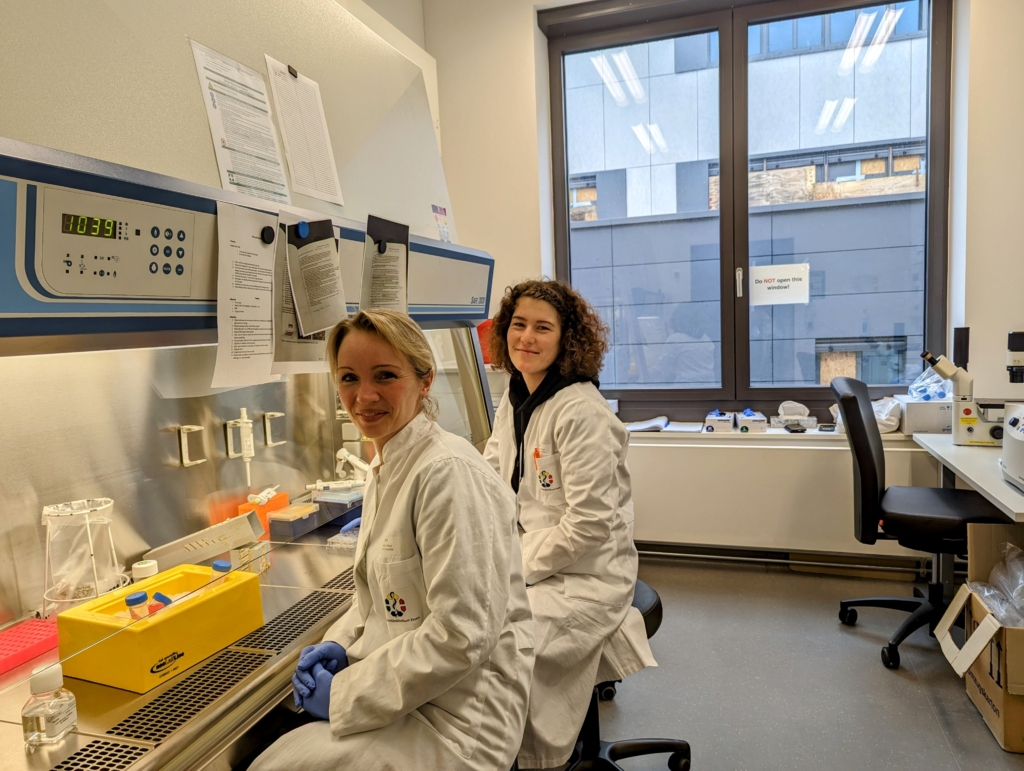
In The Lab
The lab is open!
If you are interested in joining our lab as a researcher, please read through the research priorities in the lab, and the following Expectations & Responsibilities, then contact us with 1) your CV, and 2) one page cover letter describing your research interests and background.
Expectations & Responsibilities
Your work matters. We’re here to make novel, exciting discoveries with a long-lasting impact on the cancer research landscape. Excellence is not an act, but a habit. Get organized. Design your experiments well and ahead of time. Stick to the protocols. Analyse the results right away and learn from them. Seek help as soon as you need it.
We expect scientific integrity, a good balance of hard work and smart work, common sense, and careful execution. Failures, mistakes, technical problems are an integral part of research life, and we will face them together, but we will not accept a negative attitude that harms yourself, your colleagues, or the lab as a whole. We expect you to do what you can to support and encourage your fellow lab members, make sure you have what you need to feel supported yourself and do your part to keep the atmosphere of the lab atmosphere productive and fun. All researchers in the lab are strongly encouraged and mentored to apply for funding, we work with the UME grants office and UDE/ZMB to identify relevant options.
Expectations of all lab members
Your health and safety are more important than your research. Make sure you adhere to all lab safety regulations, and, most importantly, maintain your physical and mental health.
Overall, we expect that each of us will:
- Actively participate in our weekly lab meetings (this is where you learn to present scientific results in and out)
- Actively attend departmental seminars (this is where you learn to ask questions in front of a bigger audience)
- Prepare for our regular 1:1 meetings and follow through on the tasks we have set together
- Maintain clean documentation, including data sources, annotated code & detailed methods
- Back-up your data and version control your documents
- Participate in general lab responsibilities
- Be in time for meetings and other scheduled interactions
- Mistakes happen, no problem! But make sure to fix it or report it so that we can fix it together.
PIs/Lab Leadership
All members of our lab can expect us to
- Work hard to envision, implement, and communicate/publish your research stories
- Make sure the lab has funding and get you whatever you need to test your hypothesis
- Be available for weekly/bi-weekly meetings to discuss your progress & pitfalls
- Celebrate your successes, give credit for your achievements and guide you through setbacks
- Both provide and welcome honest, constructive feedback
- Provide reference letters
- Nominate you for awards and support your travel to conferences
- Cultivate your career development, whatever your goals
- Obsess over typos, font sizes and formatting details in your drafts and presentations (that’s mostly Barbara though)
Postdocs
Postdocs in our lab are excellent colleagues and mentors to the other lab members. Post-docs lead their projects with increasing independence over time and are expected to apply for external funding, with mentorship.
As a post-doc, you can expect us to
- Help develop project ideas, including independent projects that can be taken with you
- Assist with interpretation of results
- Assist with identifying and writing postdoctoral fellowships/awards, etc.
- Proof-read manuscripts and help prepare talks
- Support travel to conferences/meetings where you present your data
We expect you to
- Apply for external funding (either for your own project or you contribute to lab grant writing)
- Write, submit and revise manuscripts
- Proof-read manuscripts from other lab members
- Attend and present at conferences
- Be available in the lab/office for a minimum pre-arranged set of hours to facilitate interactions
- Optional, but preferred: Mentor at least one Bachelor/Master student
PhD Students
PhD students are expected to bring their enthusiasm and curiosity to the lab, along with their questions! PhD students will be trained in all methods relevant for their projects that are established in the lab. They are also expected to learn and acquire new techniques as dictated by their projects when they progress. PhD students will learn how become valued colleagues, how to communicate their research in manuscripts and talks, and how to supervise research students. Graduate students also learn to participate in funding applications and can expect to spend typically 3-4 years to complete a PhD.
As a PhD student, you can expect us to
- Develop a structured project together
- Assist with identifying and writing graduate student fellowships/awards etc
- Interpret results
- Proof-read and contribute to writing of manuscripts
- Help prepare talks and posters
- Support travel to conferences/meetings
We expect you to
- Become the expert in your project and know the relevant literature/methods by heart
- Increasingly plan and execute your experiments with independence
- Write, submit and revise your own manuscript(s)
- Proof-read manuscripts from other lab members
- Publicly present a poster or talk of research progress least once a year
- Write and submit a pre-doctoral fellowship proposal and/or contribute preliminary analysis and/or help preparing specific sections of a full grant proposal.
- Be available in the lab/office for a minimum pre-arranged set of hours to facilitate interactions
- Optional, but preferred: Mentor at least one Bachelor/Master student
Master’s students, Bachelor’s students, Research Interns
We really enjoy working with students! There are many small projects which contribute to a larger picture and help the researchers in the lab to develop and test new ideas. Research students are trained in all methods relevant for their projects.
As a research student, you can expect us to
- Prepare a structured project
- Analyse and interpret results together
- Proof-read and contribute substantially to writing reports/theses
We expect you to
- Work closely with your supervisor and ensure you understand where and what your project contributes in the lab
- Present a short talk of research background and/or results to the lab at the end of your project
- Prepare a detailed report/theses at the end of your project


